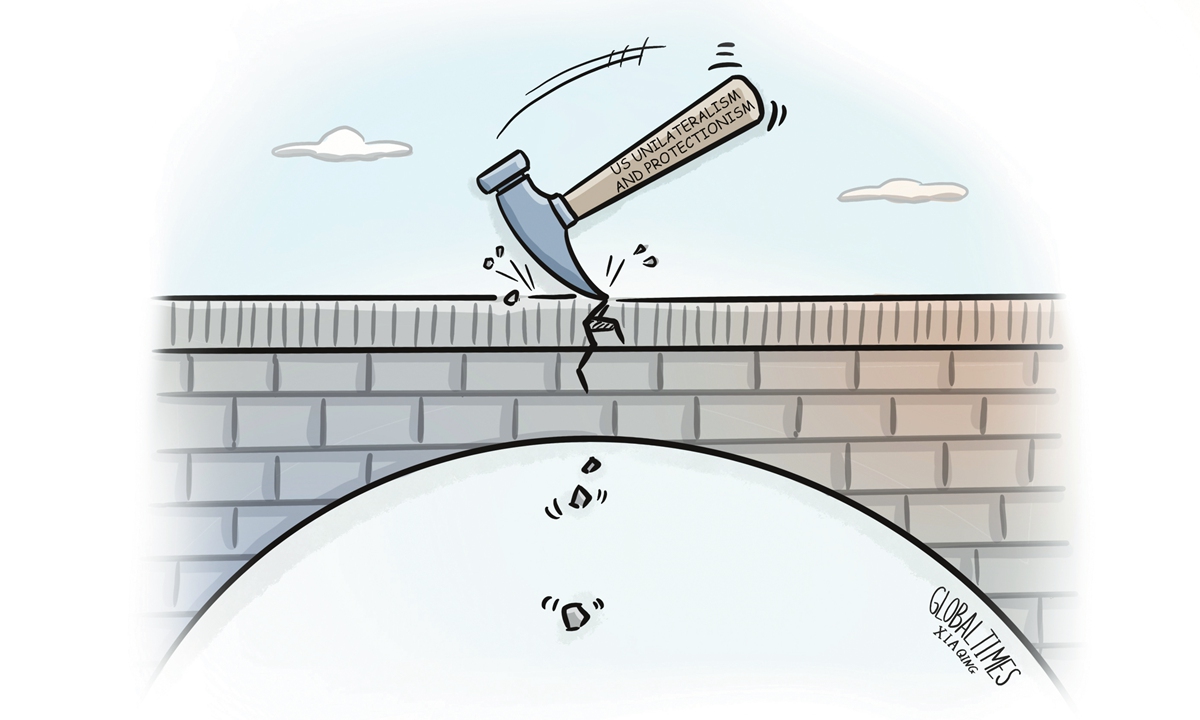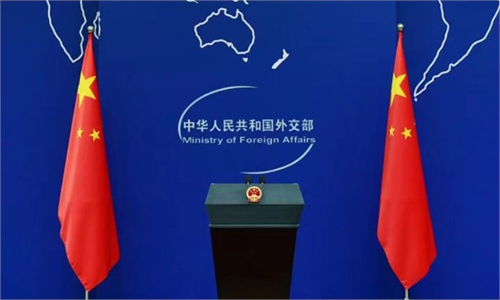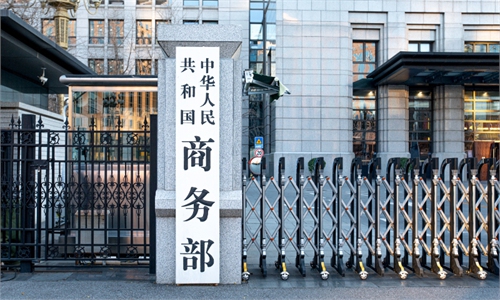
Illustration: Xia Qing/GT
China and the US share extensive common interests and broad space for cooperation. Both countries have reaped substantial benefits from decades of trade and investment cooperation. However, in recent years, the rise of unilateralism and protectionism in the US has led its government to continuously escalate tariffs on Chinese exports, pushing bilateral economic and trade relations to the brink and undermining market-oriented free trade rules. Such actions ultimately harm the well-being of people in both countries and around the world, proving to be self-defeating.At its core, China-US economic and trade cooperation is mutually beneficial. Since the establishment of diplomatic ties 46 years ago, bilateral trade and investment have flourished. The two countries have become each other's important economic partners. Bilateral trade has grown more than 270-fold, and two-way investment stock has exceeded $260 billion. Over 70,000 US companies have invested and operated in China, and US exports to China support 930,000 American jobs. As the world's two largest economies, China and the US have forged deeply intertwined trade ties, bringing tangible benefits to people in both countries and injecting strong momentum into global economic development.
Despite frictions and external disruptions, China-US economic and trade relations have shown great resilience. In 2024, bilateral trade reached $688.28 billion, a 3.7 percent year-on-year increase against global headwinds. According to the American Chamber of Commerce in the 2025 China Business Climate Survey Report released in January, 53 percent of US companies operating in China plan to increase investment in 2025, and 48 percent still rank China among their top three global investment destinations.
Apple is expanding its applied research labs in China, and Tesla is investing 1.45 billion yuan ($198.9 million) to build a Megafactory for energy storage products in Shanghai. These facts and figures demonstrate that in today's interdependent world, the economic interests of China and the US are deeply integrated and highly complementary.
Unilateralism and protectionism damage the development of bilateral economic and trade relations. In recent years, the US has ramped up its unilateral and protectionist actions, frequently imposing tariffs on Chinese goods. Since February of this year, Washington has imposed multiple rounds of additional tariffs. Under the current administration, the scope and scale of tariffs on Chinese goods have reached unprecedented levels, shaking the foundations of China-US economic ties. These moves have sparked volatility in global markets, disrupted business planning, and driven up the cost of US imports and inflation anticipations - ultimately hurting US companies and consumers.
In addition, the US has eliminated duty-free de minimis treatment for low-value imports from China. It has also proposed removing China's Permanent Normal Trade Relations status, tightened two-way investment restrictions with China and launched Section 301 investigations into sectors like shipbuilding, suggesting measures such as port fees.
These unilateral and protectionist actions not only undermine China-US cooperation but also destabilize global industrial and supply chains, hampering the recovery of the world economy. Such actions have drawn widespread criticism from the international community and have met with strong opposition even within the US.
The US justification for tariffs on China is unfounded. Its narrative of "unfair competition" is a distortion of reality. Washington accuses China of pursuing "non-market" policies and leveraging state-led subsidies or forced technology transfers to gain unfair advantages - allegations that disregard the facts. China's economic growth in global markets is rooted in its massive domestic market, complete industrial system, abundant labor force and intense market competition.
China has consistently embraced the principles of free trade, strictly abided by WTO rules and its accession commitments, steadily expanded high-level opening-up, and worked to foster a market-oriented, law-based and internationalized business environment. China treats domestic and foreign enterprises equally. Its average tariff rate stands at 7.3 percent - lower than its WTO commitments and close to the average level of developed economies.
The US false narratives and tariff actions are based on unilateral assumptions and assessments. It ignores the logic of comparative advantage, the balance of interests achieved through years of multilateral negotiations, China's achievements in opening-up and China's contribution to global growth. Most importantly, it overlooks the fact that the US has long been a major beneficiary of its economic ties with China. At their core, US actions are driven by an "America First" mind-set that prioritizes US hegemony at the expense of other countries and the international community at large. As the largest developing and developed economies, China and the US have different development stages and economic systems. It is natural for differences and frictions to arise in such close economic interactions. However, resorting to trade and tariff wars is not the solution. The two sides should sit down for equal dialogue, pursue mutually beneficial cooperation and seek solutions that serve the long-term interests of both countries - and the world. That is what people on both sides of the Pacific, and beyond, truly expect.
The author is a senior research fellow at the Chinese Academy of International Trade and Economic Cooperation. opinion@globaltimes.com.cn



